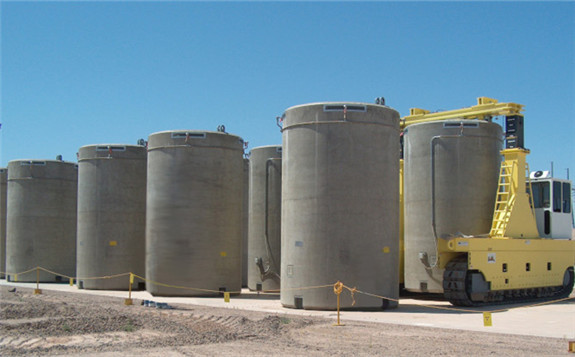
"Hearing from and then working with communities interested in hosting one of these facilities is the best way to finally solve the nation's spent nuclear fuel management issues," said Secretary of Energy Jennifer Granholm.
The DOE issued a request for information on 1 December in the Federal Register, aimed at completing a draft siting process it has been working on since 2015. It encourages individuals and groups to provide input on a range of social matters related to the project. DOE noted it is especially keen to hear from groups that have not been adequately represented in the past.
"Consent-based siting must be driven by communities and done in close collaboration with the public, interested groups, and governments at the tribal, state, and local levels. This request for information is a first step in that direction," said the DOE.
Principal Deputy Assistant Secretary for Nuclear Energy Katy Huff said "willing communities have the right to explore the benefits and conditions they need to host a federal interim storage facility."
Granholm said: "We know there are real benefits from jobs to new infrastructure that will result in interest in areas across the country. The public's input is central to identifying those locations to make this process as inclusive and effective as possible."
The move represents the first tangible step in recovery from the previous disposal plan since 2009 when President Barack Obama zeroed funding for the Yucca Mountain repository project and declared it "not an option". The NRC terminated licensing activities for the repository in 2010-11. The request for information and draft siting process will be focused on interim storage and does not invite comments on potential repository sites.
US used nuclear fuel disposal is governed by the 1982 Nuclear Waste Policy Act, which gave the DOE responsibility to open a disposal site by 1998 and began collecting a Nuclear Waste Fund from utility contributions to pay for it. An amendment to the act in 1987 specified Yucca Mountain as the sole disposal site.
With no disposal site forthcoming, nuclear power plant operators had to make their own arrangements to store used fuel, such as setting up dry storage casks. The DOE has been forced in court to repay utilities' costs from the Nuclear Waste Fund, which contains tens of billions of dollars ring-fenced for used fuel management only.
There is now a total of about 86,000 tonnes of used nuclear fuel stored at 75 operating or shutdown nuclear plants in 33 states, according to the US General Accounting Office.
Responses to the request for information must be received by 4 March 2022.